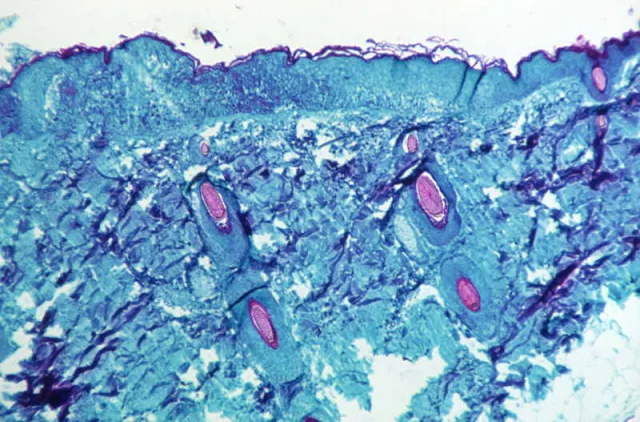Since the first instance of a companion dog contracting monkeypox from its owners was made public, precautions have increased to safeguard animals from the rise in the disease's reversible overflow into animals.
According to research reported in The Lancet, a pet dog caught monkeypox from its diseased owners even though the present monkeypox outbreak is caused by human-to-human contact.
Since monkeypox is a zoonotic virus, it can spread from animals to people and vice versa. This was the first instance of a pet dog being exposed to the monkeypox virus through human contact.
Officially classified as a public health emergency, monkeypox has so far only been spread from person to person. However, a recent study published in The Lancet discovered that human-to-animal transmission has also taken place.
Two French men who shared a home were found to have monkeypox infection, according to the study. On June 10, the males arrived at Pitié-Salpêtrière Hospital with rashes, headaches, and fevers that were consistent with monkeypox.
The Italian greyhound dog had what looked like monkeypox-like scabs and sores.
Medical professionals discovered through DNA testing that the monkeypox virus discovered in one of the dog's owners matched the virus that was afflicting the dog.
The researchers recommended additional research into the possibility of monkeypox secondary transmission via pets in light of their findings. "Our findings should spark discussion about whether it's necessary to keep pets separate from people who have the monkeypox virus.
This is the first incident that we’re learning about where there is human-to-animal transmission,” said Rosamund Lewis, the World Health Organisation’s lead on monkeypox.
“So, on a number of levels, this is new information. It’s not surprising information, and it’s something that we’ve been on the watch out for.”
Based on the study’s findings, the Centres for Diseases Control & Prevention, CDC, updated its guidance on monkeypox to include dogs among the animals that can be infected by the virus.
The agency now lists 10 animals that can possibly contract monkeypox, including hedgehogs and domestic rabbits.
According to the CDC guidance: “Infected animals can spread monkeypox virus to people, and it is possible that people who are infected can spread monkeypox virus to animals through close contact.”
Health experts say that the risk of transmitting monkeypox to pets is low, but they still recommend that people who are infected take precautions to prevent potential spread.
To reduce the risk of viral transmission, avoid close contact with your pets, including petting, cuddling, sharing sleeping areas, and sharing food, if you are infected.
Pets who have had close contact with an infected individual should be isolated from other people and animals for 21 days and taken care of by another member of the household if possible.
If infected individuals need to care for their pets, they should wash their hands before and after caring for them, cover any rashes with long sleeves and pants, and wear gloves and a mask during close interactions.
In addition, it is recommended that infected individuals avoid directly handling a pet’s food, toys, or bedding to avoid potentially contaminating the surfaces.
Common symptoms to watch for include: lethargy, lack of appetite, coughing, nasal secretions or crust, bloating, fever, pimple- or blister-like skin rashes, etc.
If symptoms appear within 21 days of a pet being exposed to the virus, it is recommended that a veterinarian be contacted to get the pet professionally assessed.
However, it is unlikely that monkeypox had spread to domesticated animals.
Dr. Amesh Adalja, a senior scholar at the Johns Hopkins University Centre for Health Security and an infectious disease expert, says monkeypox is primarily a zoonotic infection that arises from animals.
Wild animals including rodents and primates, are known to get infected with monkeypox in countries where monkeypox is endemic.
Monkeypox has been detected in captive primates in Europe and prairie dogs in the United States after being exposed to imported animals that were infected.
“We know that monkeypox can infect a variety of animals so it is not surprising,” Adalja said.
If you develop monkeypox, keep your distance from your dog or cat. More research is needed to understand how common this type of transmission is along with the prognosis in dogs.



